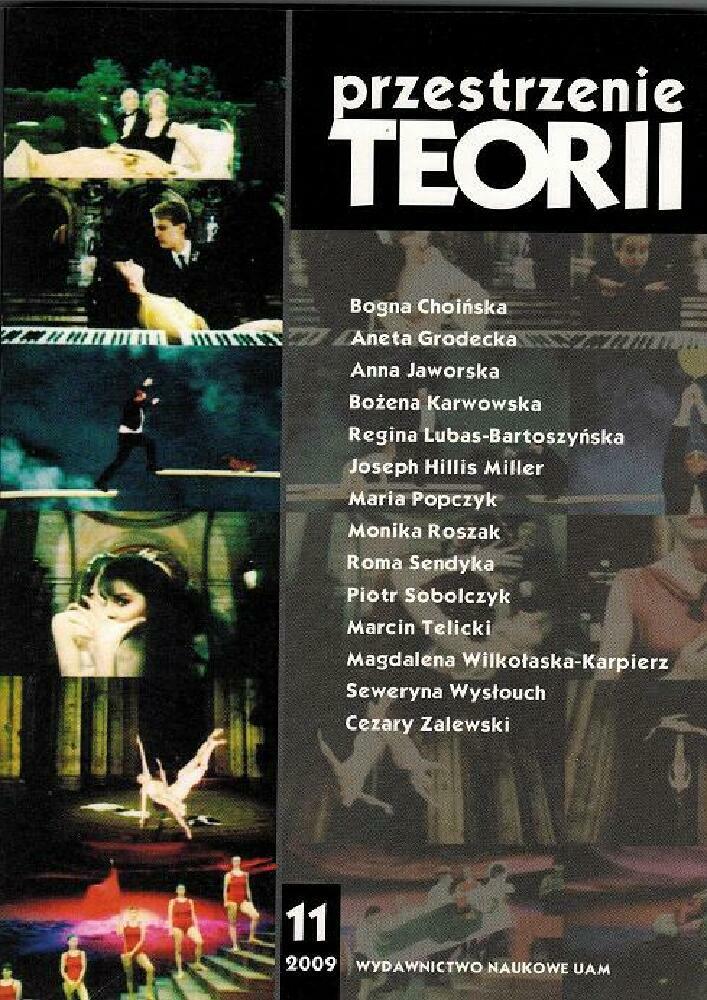Abstract
The article places the now forgotten short story by Bolesław Prus Ze wspomnień cyklisty in the mythological and metaliterary context. The prevalent role of amorous plots in this work thus becomes explained through a reference to the myth of Androgyne, solidified in Plato's Feast, that permeated Polish literature following the Romantic (A. Mickiewicz's Forefathers, Part IV) and modernist works (S. Przybyszewski's Androgyne). The article shows Prus's critical attitude to thus outlined tradition, which assumes a direct and spontaneous nature of amorous desire, since the story's protagonist only "falls in love' when other suitors appear with whom he can compete for women's favours. At the same time, the deconstruction of the androgynous myth reveals yet another concept of desire. Hence the text meets the requirements of the "constructive parody" described by M. Głowiński.References
B. Prus, Notatki do powieści „Cykliści”, „Archiwum Literackie”, t. XIX, red. E. Pieścikowski, Wrocław 1974.
J. Tynecki, Eros rozcząstkowany (albo: Prus wobec Androgyne), w: Światopogląd pozytywizmu. Łódź 1996; M. Głowiński, Prus - parodysta: „Ze wspomnień cyklisty”, w: Monolog wewnętrzny Telimeny i inne szkice, Kraków 2007.
T. Budrewicz, Farys spieszony. Wokół „Ze wspomnień cyklisty”, w: Jubileuszowe „Żniwo u Prusa”, pod red. Z. Przybyły, Częstochowa 1998.
Platon, Uczta, przeł. W. Witwicki, Warszawa 1982.
K.J. Dover, Aristophanes’ speech in Plato’s Symposium, „The Journal of Hellenic Studies” 1966, vol. 86.
R.A. Markus, The Dialectic of Eros in Plato’s Symposium, „Downside Review” 1955, vol. 73, s. 222; por. S. Bernardete, On Plato’s Symposium, Munchen 1994.
M. Eliade, Mefistofeles i Androgyn, przeł. B. Kupis, Warszawa 1999.
M. Janion, M. Żmigrodzka, IV część „Dziadów” i wczesnoromantyczny bohater egzystencji, „Pamiętnik Literacki” 1987, z. 1.
M. Rudaś-Grodzka, „Sprawić, aby idee śpiewały”. Motywy platońskie w życiu i twórczości Adama Mickiewicza w okresie wileńsko-kowieńskim, Warszawa 2003.
B. Dopart, Mickiewiczowski romantyzm przedlistopadowy, Kraków 1992.
S. Przybyszewski, Androgyne, w: Poematy prozą, wybór, wstęp i opracowanie G. Matuszek. Kraków 2003.
S. Przybyszewski, Androgyne, w: Poematy prozą, wybór, wstęp i opracowanie G. Matuszek. Kraków 2003.
B. Prus, Ze wspomnień cyklisty, w: Pisma, pod red. Z. Szweykowskiego, t. XXIV, Warszawa 1949.
Z. Szweykowski, Twórczość Bolesława Prusa, Warszawa 1972.
T. Różewicz, Matka odchodzi, Wrocław 2000.
M. Głowiński, Parodia konstruktywna (O „Pornografii” Gombrowicza), w: tegoż, Gry powieściowe. Szkice z teorii i historii form narracyjnych, Warszawa 1973.
B. Prus, Listy, oprać. K. Tokarzówna, Warszawa 1959.
License
Authors
Authors of texts accepted for publication in Przestrzenie Teorii are required to complete, sign and return to the editor's office the Agreement for granting a royalty-free license to works with a commitment to grant a CC sub-license.
Under the agreement, the authors of texts published in Przestrzenie Teorii grant the Adam Mickiewicz University in Poznań a non-exclusive, royalty-free license and authorize the use of Attribution-NonCommercial-NoDerivatives 4.0 International (CC BY-NC-ND 4.0) Creative Commons sub-license.
The authors retain the right to continue the free disposal of the work.
Users
Interested Internet users are entitled to use works published in Przestrzenie Teorii since 2015, for non-commercial purposes only, under the following conditions:
- attribution - obligation to provide, together with the distributed work, information about the authorship, title, source (link to the original work, DOI) and the license itself.
- no derivatives - the work must be preserved in its original form, without the author's consent it is not possible to distribute the modified work, such as translations, publications, etc.
Copyrights are reserved for all texts published before 2015.
Miscellaneous
Adam Mickiewicz University in Poznań retains the right to magazines as a whole (layout, graphic form, title, cover design, logo etc.).
